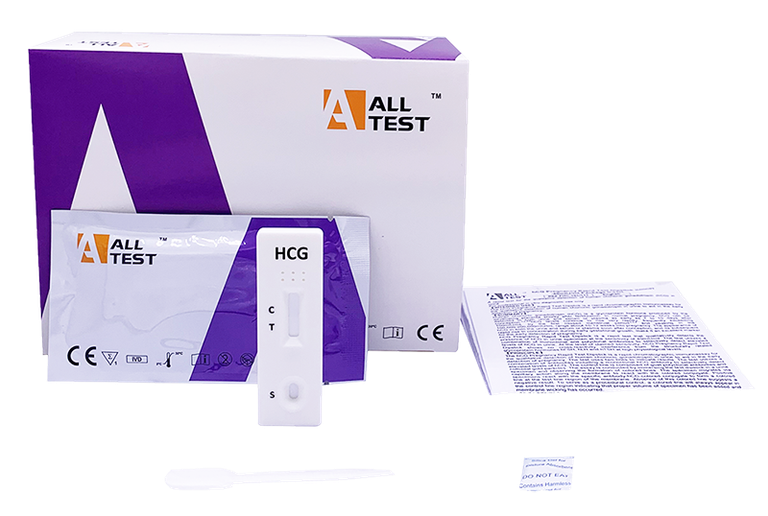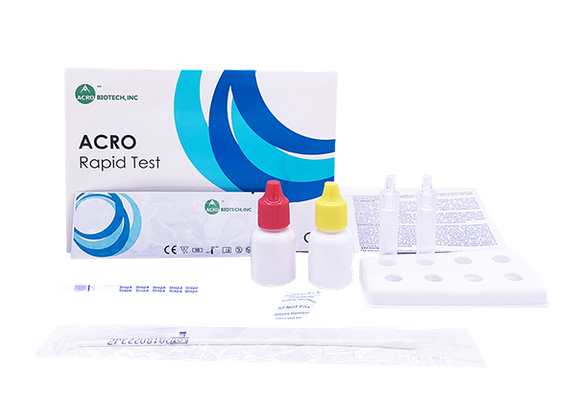Implementation of QuikRead go CRP POC testing in nursing homes benefits the residents and helps to combat antimicrobial resistance
Overprescribing of antibiotics is common in nursing homes
Antibiotic overprescribing in lower respiratory tract infections (LRTIs) is common in nursing homes because patients may have atypical clinical presentations. Also, the lack of diagnostic options make diagnosis often difficult, and differentiation of severe and self-limiting infections is challenging. Nursing home residents may be fragile, and infections have a high risk to have serious outcomes. Therefore, antibiotics are often prescribed just in case to avoid any risk for the residents. Antimicrobial resistance (AMR) is an emerging health threat and rationalizing antibiotic use in all healthcare settings is important to decelerate the development of ARM.
The UPCARE study investigated the effect and implementation of CRP point of care in nursing homes
C-reactive protein (CRP) point of care testing (POCT) has shown to decrease unnecessary antibiotic prescribing in LRTIs in primary care. Nevertheless, the evidence from the nursing home setting has been lacking. The UPCARE study in the Netherlands (Using Point-of-care C-reactive protein to Guide Antibiotic Prescribing for Respiratory Tract Infections in Elderly Nursing Home Residents) used QuikRead go CRP POCT and investigated the effect of CRP POCT for antibiotic prescribing in nursing homes1. The study also conducted a process evaluation about the implementation of CRP POCT in nursing home facilities and assessed the barriers and facilitators for the use of CRP POCT2.
The implementation of CRP POCT in nursing homes decrease unnecessary antibiotic prescribing for lower respiratory tract infections
The UPCARE study demonstrated that CRP POCT decreased antibiotic prescribing for LRTIs by 29 % compared to usual care without increasing the number of hospitalizations, mortality or affecting patient's recovery1. Furthermore, physicians who participated in the study felt that the use of CRP POCT was one of the main factors that changed their antibiotic prescribing behaviour for LRTIs during the study period2. These findings support the idea that large-scale implementation of CRP POCT is useful in nursing homes and aids the management of LRTI’s.
Easy access to the analyzer and good communication between the personnel facilitate successful CRP POC implementation
Adoption of new interventions in nursing homes can be challenging because patients are heterogenic, and the nursing home setting may be complex. To support the use of CRP POCT in a nursing home setting, authors provided key recommendations for CRP implementation in the nursing home setting2:
- Implementation of CRP POCT is recommended in medium to large nursing homes with >75 residents.
- Cooperate with a primary care laboratory.
- Appoint 1-2 team champions per location for medical training (physician) and management of the POCT user group (physician or a nurse).
- POCT group should be manageable and proportional to the number of residents.
- POCT analyzer and materials needed for testing should be within a short distance.
- Short line communication is important between personnel involved with CRP POCT.
- Exchange of experiences regarding CRP POCT during team meetings.
As seen in the UPCARE study, implementations of new interventions, such as CRP POCT, may provide substantial benefits for nursing home residents.1,2 Reduction of unnecessary antibiotic prescribing decrease the unnecessary medication of the residents and possible adverse events of the antibiotics. Also, rational antibiotic prescribing helps to fight against the global threat of antimicrobial resistance.
References
- Boere TM, van Buul LW, Hopstaken RM et al. Effect of C reactive protein point-of-care testing on antibiotic prescribing for lower respiratory tract infections in nursing home residents: cluster randomised controlled trial. BMJ 2021; 374:n2198.
- Boere TM, Hopstaken RM, van Tulder MW et al. Implementation and Use of Point-of-Care C-Reactive Protein Testing in Nursing Homes. JAMDA 2021, in press https://doi.org/10.1016/j.jamda.2021.09.010


